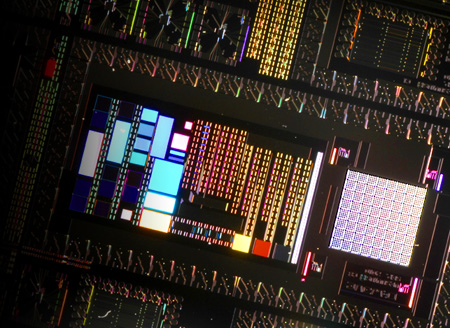COMPUTING RESEARCH HIGHLIGHT OF THE WEEK [November 8 - 16]
Harvard Researchers Use D-Wave Quantum Computer to Fold Proteins
 In a paper published in Nature Scientific Reports, http://www.nature.com/srep/index.html, a team of Harvard University researchers, led by Professor Alán Aspuru-Guzik, presented results of the largest protein folding problem solved to date using a quantum computer. The researchers ran instances of a lattice protein folding model, known as the Miyazawa-Jernigan model, on a D-Wave One™ quantum computer.
In a paper published in Nature Scientific Reports, http://www.nature.com/srep/index.html, a team of Harvard University researchers, led by Professor Alán Aspuru-Guzik, presented results of the largest protein folding problem solved to date using a quantum computer. The researchers ran instances of a lattice protein folding model, known as the Miyazawa-Jernigan model, on a D-Wave One™ quantum computer.
“It’s gratifying to see that our machine can be used to serve the scientific community in this way,” stated Dr. Geordie Rose, D-Wave CTO and Founder.
“The D-Wave computer found the ground-state conformation of six-amino acid lattice protein models. This is the first time a quantum device has been used to tackle optimization problems related to the natural sciences,” said Professor Alán Aspuru-Guzik from the Department of Chemistry and Chemical Biology at Harvard University.
Proteins contribute to virtually every process that occurs within a cell. The shape of a protein is closely related to its function. Understanding the shape of a protein helps researchers understand how it behaves, accelerating advances in many different areas of life sciences, including drug and vaccine design.
A cornerstone of computational biophysics, lattice protein folding models provide useful insight into the energy landscapes of real proteins. Understanding these landscapes, and how real proteins fold into the shapes that help give them their function, is an extremely difficult problem for today’s computers to solve.
Dr. Alejandro Perdomo-Ortiz, the lead author of the paper, stated that: “Knowing that we can use real quantum computers to solve hard problems in biology is an exciting and important result. The techniques developed in this report can also be used to tackle other biophysical problems such as molecular recognition, protein design, and sequence alignment.”
About D-Wave Systems Inc.
Founded in 1999, D-Wave’s mission is to integrate new discoveries in physics and computer science into breakthrough new approaches to computation. The company’s flagship product, the D-Wave One™, is built around a novel type of superconducting processor that uses quantum mechanics to massively accelerate computation. In 2010 Lockheed Martin purchased serial number 1, completing the historic world’s first sale of a commercial quantum computer. With headquarters near Vancouver, Canada, its U.S. offices, as well as its superconducting chip foundry, are located in Silicon Valley. D Wave has a blue-chip investor base including Business Development Bank of Canada, Draper Fisher Jurvetson, Goldman Sachs, Growthworks, Harris & Harris Group, International Investment and Underwriting, Kensington Partners Limited. Gartner Group analysts named D-Wave 2012 Cool Vendor in High-Performance Computing and Extreme-Low-Energy Servers. For more information, visit: www.dwavesys.com.
Media contact: Janice Odell • 415. 738.2165 • jan@fordodell.com
This press release may contain forward-looking statements that are subject to risks and uncertainties that could cause actual results to differ materially from those set forth in the forward-looking statements.
Source: D-Wave Systems Inc.
‹ Current Highlight | Past Highlights ›
Computing Research Highlight of the Week is a service of the Computing Community Consortium and the Computing Research Association designed to highlight some of the exciting and important recent research results in the computing fields. Each week a new highlight is chosen by CRA and CCC staff and volunteers from submissions from the computing community. Want your research featured? Submit it!.




